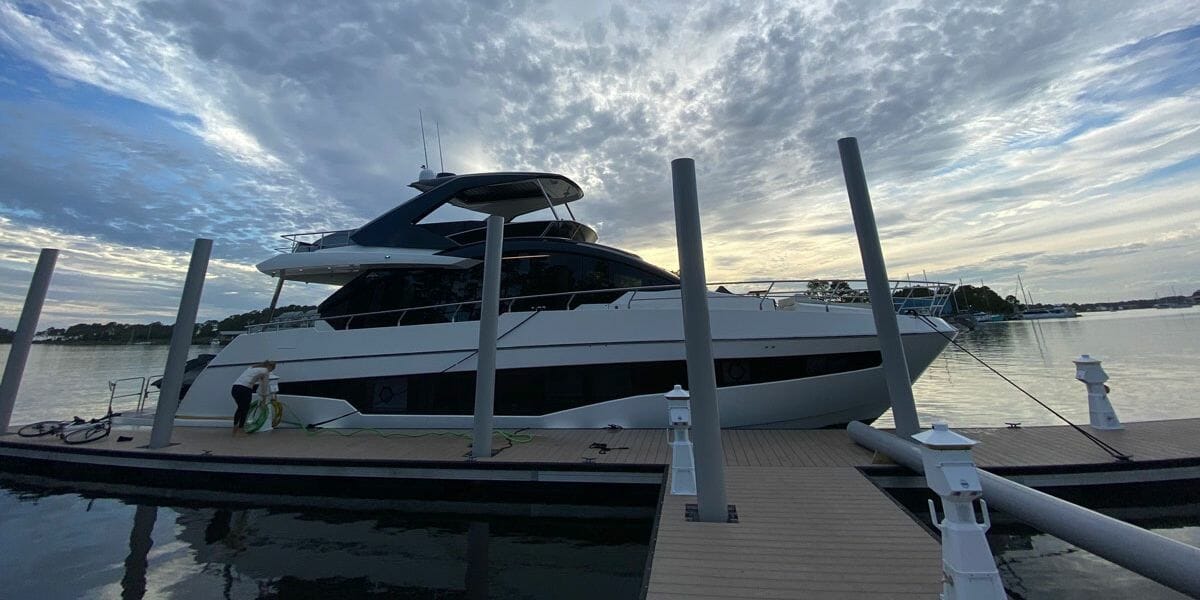Congratulations on becoming a first time boat owner! Owning a boat can bring immense joy and unforgettable experiences. Whether you’re planning to sail across serene lakes or embark on thrilling ocean adventures, it’s important to familiarize yourself with the essential aspects of boat ownership. This comprehensive guide will take you through the process, from registration to maintenance, ensuring that you embark on your boating journey with confidence.
Understanding Boat Registration and Legal Requirements

Registering Your Boat
Before taking your boat out on the water, it’s crucial to register it with the appropriate authorities. Research the specific regulations and requirements of your country or state regarding boat registration. Gather all the necessary documents and submit them to the designated agency to obtain your boat’s registration certificate. Let’s discover also: How to Remove A Rock From Your Landscape
Obtaining the Necessary Permits and Licenses
In addition to boat registration, you may need to acquire certain permits or licenses. These could include a boating safety certificate, a fishing license, or permits for specific activities like water skiing or scuba diving. Familiarize yourself with the local laws and ensure you comply with all the necessary regulations.
Choosing the Right Boat for Your Needs
Considerations for Boat Selection
When selecting a boat, it’s essential to evaluate your specific needs and preferences. Determine the type of boating activities you plan to engage in, such as fishing, water sports, or leisure cruising. Consider factors like boat size, engine type, and features that align with your requirements and budget.
Researching Boat Brands and Models
Take the time to research different boat brands and models available in the market. Read reviews, consult with experienced boat owners, and visit boat shows to gather information about the performance, reliability, and customer satisfaction associated with various brands and models. This research will help you make an informed decision when purchasing your boat.
Boat Maintenance and Upkeep
Regular Cleaning and Inspection
To keep your boat in top condition, establish a regular cleaning routine. Thoroughly clean the interior and exterior, paying attention to areas prone to dirt, saltwater residue, or mold. Additionally, inspect your boat for any signs of wear and tear, such as cracks, leaks, or damage to the hull or propellers.
Engine Maintenance
Proper engine maintenance is crucial for the smooth operation of your boat. Follow the manufacturer’s guidelines for routine maintenance tasks like oil changes, filter replacements, and spark plug checks. Regularly inspect the engine for any issues and address them promptly to avoid major repairs or breakdowns.
Winterization and Storage
If you live in an area with cold winters, it’s important to winterize your boat to protect it from freezing temperatures. This process involves draining water from the engine, adding antifreeze, and storing the boat in a secure location. Consider consulting a professional for winterization to ensure thorough protection.
Ensuring Safety Onboard
Equipping Safety Gear
Safety should always be a top priority while boating. Make sure your boat is equipped with essential safety gear such as life jackets, fire extinguishers, distress signals, and a first aid kit. Educate yourself about the proper usage of these items and ensure they are readily accessible in case of an emergency.
Learning Basic Navigation and Boating Rules
Before venturing out on the water, familiarize yourself with basic navigation techniques and boating rules. Learn how to read nautical charts, understand buoys and markers, and recognize navigational hazards. Additionally, educate yourself about right-of-way rules and speed limits to ensure safe and responsible boating.
Conclusion
Becoming a first-time boat owner opens up a world of exciting possibilities. By following the steps outlined in this guide, from boat registration to maintenance, you’ll be well-prepared to embark on unforgettable boating adventures. Remember to prioritize safety, perform regular maintenance, and continue expanding your knowledge and skills as you gain more experience on the water.
FAQs (Frequently Asked Questions)
Do I need insurance for my boat?
Yes, it’s highly recommended to have boat insurance to protect your investment and cover any potential liabilities.
How often should I have my boat serviced?
Regular servicing is typically recommended at least once a year, but it can vary based on your boat’s usage and engine type. Consult the manufacturer’s guidelines for specific recommendations.
Can I store my boat outdoors during winter?
Storing your boat outdoors during winter is generally not recommended, as exposure to freezing temperatures can cause damage. It’s best to store it in a covered storage facility or consider shrink-wrapping it for added protection.
What safety precautions should I take during storms or rough weather?
It’s advisable to avoid boating during severe weather conditions. If caught in a storm, seek shelter in a safe harbor or marina and wait for the weather to improve before resuming your journey.
How can I learn more about boating safety and skills?
Consider enrolling in boating safety courses offered by organizations such as the Coast Guard or local boating associations. These courses provide valuable knowledge and practical training to enhance your boating skills.





